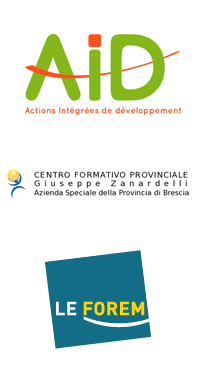Objectives
The aim of the project is to support professional permeability and mobility for workers in the field of health and social care by promoting the use of ECVET to support transparency and recognition of learning outcomes and qualifications, including non-formal and informal learning.
Among the main aims and objectives of the project are:
- The description of units of learning outcomes including ECVET credits for the following professions:
- - Germany: Staatlich anerkannter Sozialassistent (Social assistant); Staatlich anerkannter Altenpfleger (elderly care nurse);
- Belgium: helping nurse, familiy helper, family care;
- Italy: Assistente Familiare (family assistant), Ausiliario Socio Assistenziale (health care assistant), Operatore Socio Sanitario (health social operator) and Collaboratore Domestico -Colf (house keeper)
- Methodology of description of activity-oriented and competence-based learning outcomes according to the recommendations for ECVET and EQF in units,
- Methodology of allocation of ECVET credits to units of learning outcomes and qualifications
- Common assessment standards (methods and processes) on a competence-oriented basis
- Methodology of defining common standards to assess outcomes of formal, informal and non-formal learning
- Model for personal transcripts of assessed learning outcomes, according to the EUROPASS transparency instruments
- Comparison of learning outcomes on the basis of the identified professions for national permeability
- Methodology of comparison of learning outcomes allowing mobility and permeability
- Development, transfer and implementation of educational modules of central work competences from other professions into "Extra qualifications"
for the included professions



